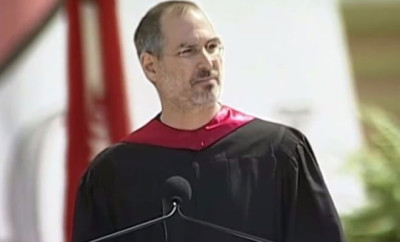
The Most Successful Leaders Are Critical Thinkers
The Marquis de Sade is one of the most infamous, deviant and evil French writers of all times. The words sadism or sadist are derived from his notorious name. I studied some of Sade’s work in high school. I remember my French literature teacher asking us only if we felt comfortable reading these 18th century texts. Who would feel comfortable reading these outrageous and shocking stories? As high school students, we obviously were more used to the standard educational materials than these forbidden stories that are mostly based on immorality, violence, sexual deviance and extreme freedom.
When we give people the power to choose between reading or not to reading something, it is always a seductive way of inviting them to take the first step to dangerously overcome their own fears and to satisfy their own human curiosity. So, like most of my classmates, I voluntarily read and passionately discussed these atrociously graphic texts. Let me reassure you: this brave French literature teacher was not a fervent defender of Sade, or a pervert in disguise, for putting our innocent minds in peril. Monsieur Javelot (my former teacher) was an unconventional educator who taught me valuable life lessons.
My French literature teacher was a Master of critical thinking
Even though I was just 16 years old, I could discern the precious purpose of such polemical work. Sade was not clearly a model of morality, but who really is? He was a remarkable thinker who questioned everything to such deep degrees. Sade’s impure questioning always provoked numerous scandals and human indignations that made him spend so many years in prison. He was far ahead of his time, because he meticulously illustrated impenetrable and immoral human behaviors through his fictional writing. These are the same human behaviors that are widely researched today in the field of psychology.
I always believed that education is not only about the simple transfer of information or knowledge, but more importantly, it is about encouraging people to think. Education is the only path to knowing how to think, not what to think. This is exactly what my French literature teacher did with his students so many years ago. He dared to let us explore these immoral texts and instead of telling us what to think about it, he simply gave us this invaluable freedom to think. He did not tell us what to think, there were no checklists or pre-established answers. Beyond the shocking and libertine writing of Sade, we were able to see both sides of his scandalous writing. We were able to see that this author was not only an abominable monster, as many people have depicted him, but he was a revolutionary thinker with incontestable modern philosophical ideas about our humanity.
Critical thinking is absolutely not a robotic use of a specific set of skills that can be used with convenience. Critical thinking is a deep and personal form of thinking that penetrates beyond the visible surface. It is the ability to recognize assumptions, evaluate arguments and examine conclusions. Critical thinking is our freedom to rationalize our own uniqueness.
Unfortunately, we all know that formal education discourages critical thinking and unconventional solutions to specific problems. Do you remember being in a classroom one day and thinking that the solution presented to a specific problem was illogical from your own standpoint? Do you remember this precious feeling that you had because you thought you were so right, but then the authoritative teacher told that you were completely wrong, because there was only one right answer in the book. Well, this is what I am talking about, this deep feeling rooted in your own logic. This amazing uniqueness that defines you.
Regain your priceless freedom to question
Why should there always be just one answer to a specific situation? Why do we take the information we give to others as a given? Why are we becoming less and less questioning? Why are some of the current theories in leadership not being challenged by unconventional human beings? Why do we believe that just some of us can be leaders? Why should leadership be monopolized by a so-called “thought elite”? Why do we keep focusing on the useless debate about managers and leaders as if people are static individuals with prescribed behaviors? Is anyone able to prove that because people are the top executive, they should be labelled as top leaders?
We all know that leadership is purely action, not position. We have to forgive those who believe that their position make them more qualify to lead. We all know that for true leadership to happen, we have to act with a sense of purpose and inspiration, no matter our position, title, rank, label, color or gender. We have to think to be able to lead.
Leadership is very complex, because it deals with human beings. Firstly, leadership is about relationships and we all know that relationships can be very complicated. Leadership should not be reduced to a simple series of bullet points or a bold checklist just to make things simpler, because we plainly refuse to just pause and think. We only want to memorize and consume more and more of these unhealthy “leadership meals”. We want to choose the easy way, because we believe that only some authorities who pose as leaders are allowed to think for everybody. They are the ones who feed us with these happy ending stories that leadership is something very rational and something so simple and easy to master in a few steps. They are selling millions of false dreams and they are conning us in so many ways.
Wrong or right answer? Who decides and why?
We want to believe that leadership is something easy to buy and quickly apply. There is no quick fix in leadership. There is just a beautiful and weighty doubt. A flow of uncertainty that will constantly trouble us. This is why we always try to reassure ourselves and others that we are perfectly able to master leadership. We constantly list rules to follow, attitudes to adopt, and a set of goals to achieve to make people feel better about themselves. You will feel better for some time before the doubt comes back to haunt you. We hide behind some comfortable ideas to avoid thinking about who really sets the rules and attitudes, and more importantly, why this model or theory should be right for us? Life is beautifully complicated; we are all solicited by it, to take on valuable challenges that are beyond a price. Why should leadership be simplified?
We have to realize how a specific model or theory can really abort our critical thinking and alienate our thoughts in one specific direction. Leadership is about our abilities to create something that we have never read about or learnt by heart. This is something we created with our own mind for a specific situation at a specific time. Leadership is about the past, present and more importantly the future. Indeed, the future requires deep reflection and critical thinking is not a simple application of a limited model or theory. How can we lead solely based on past leadership models? We have to be able to critically think in order to create and develop our innovative thinking.
Leadership should not constantly focus on how to lead: instead, it should focus on how to think. Let’s try to really think and reflect. Who really does take the time to just think in this hectic world? Let’s stop simplifying things to avoid true reflection on ourselves and others. We have to free our thoughts from the suffocatingly dumb idea that we are not entitled to critically think. We all are! Do not let anybody else think for you. All human beings are intelligent and they have the legitimate and full right to question everything: Sade’s scandalous stories, my LinkedIn posts, bullet points, checklists, lists, rules, attitudes, assumptions, sources of information and facts, concepts, methods, implications, views…
We have to reflect on what leadership truly means for us as unique human beings and individuals of character.
KHM.
First published at linkedin.com.
Image – depositphotos







